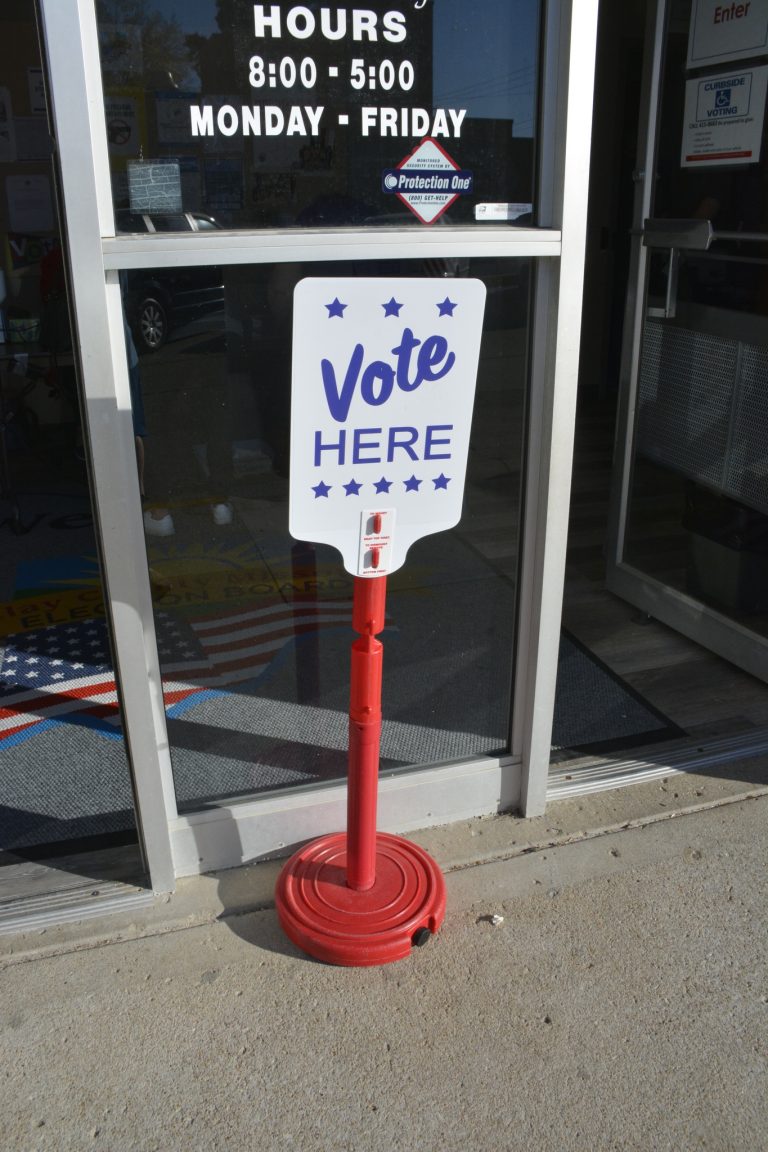By Amanda Lubinski
ALubinski@cherryroad.com
Voters in Missouri’s November election will decide women’s right to reproductive freedom and whether to reverse the state’s near total-ban on abortion with Amendment 3.
The ballot language asks voters if they want to amend the state Constitution to: “establish a right to make decisions about reproductive health care, including abortion and contraceptives, with any governmental interference of that right presumed invalid; remove Missouri’s ban on abortion; allow regulation of reproductive health care to improve or maintain the health of the patient; require the government not to discriminate, in government programs, funding and other activities, against persons providing or obtaining reproductive health care; and allow abortion to be restricted or banned after fetal viability except to protect the life or health of the woman?”
What ‘yes’ & ‘no’ votes would mean
The Right to Reproductive Freedom Initiative, also known as Amendment 3, states passage would mean the government could not “deny or infringe upon a person’s fundamental right to reproductive freedom, which is the right to make and carry out decisions about all matters relating to reproductive health care, including but not limited to prenatal care, child care, postpartum care, birth control, abortion care, miscarriage care and respectful birthing conditions.”
A “yes” vote would also allow regulation of reproductive health care to improve or maintain the health of the patient and prohibit the state from restricting abortion access or limiting state funding to organizations because they provide abortion or contraceptives, including clinics like Planned Parenthood.
If passed, Amendment 3 would also only ban abortions after fetal viability, defined in the amendment as “the point in pregnancy when, in good faith judgment of a treating health care professional and based on the particular facts of the case, there is a significant likelihood of the fetus’ sustained survival outside the uterus without the application of extraordinary medical measures.”
Amendment 3 doesn’t define however, “extraordinary medical measures,” meaning it is unclear what constitutes extraordinary versus ordinary care.
A “no” vote would keep the current near-total abortion ban in place.
Currently under the state constitution, no abortion shall be performed or induced upon a woman after conception, except in cases of medical emergency. The current law does not provide exceptions for rape or incest.
The constitution currently states any person who knowingly performs or induces an abortion shall be guilty of a felony as well as possible suspension or revocation of their professional license by their licensing board.
State statutes require minors to get parental permission or a court order before obtaining an abortion unless they are legally emancipated. If Amendment 3 passes, these statutes would remain in effect. However, according to the Kansas City Star, these consent laws may become challenged in court if Amendment 3 passes because “the amendment would ban government interference in the right to make decisions about reproductive health care.”
“If the law is challenged, it would be up to a judge to decide whether requiring parental approval or a court order constitutes government interference in decisions about this care,” reports the Star.
State governmental entities estimate no costs or savings, but unknown impact if Amendment 3 passes.
“Local governmental entities estimate costs of at least $51,000 annually in reduced tax revenues. Opponents estimate a potentially significant loss to state revenue,” reads the ballot summary.
The amendment would take effect 30 days after passage, but passage, according to legal experts around the state, would likely result in legal filings that could delay or ultimately determine how soon protections could allow abortion access.
Arguments for and against
Those opposed to Amendment 3 include James Johnston Jr., the bishop of the Kansas City-St. Joseph Catholic diocese. In a letter sent to Catholics around the area, including Liberty, in September, the bishop sparked controversy with claims of what passage would mean and encouraged people to vote down Amendment 3.
The bishop states in the letter, passage of the amendment would have “many alarming consequences” and called the amendment “extreme.”
In the letter, the bishop states no parental notification or consent would be required for reproductive health care decisions; that the amendment’s usage of “health care professional” could mean a nurse, physician’s assistant, dental hygienist or pharmacist could “legally perform an abortion;” and that there would be no civil or criminal recourse “against negligence resulting in harm or death of a mother receiving reproductive health care or a wanted child during delivery.”
After receiving the letter, Catholics from around the region took to social media, questioning whether the letter, by engaging in what they believe is political campaigning, violates IRS rules governing tax-exempt religious organizations.
Liberty resident Bernadine Kline reached out to the Courier-Tribune, the Dispatch’s sister publication, after the bishop’s letter was received by her and her husband.
“It is filled with disinformation and fear-mongering,” she wrote, adding a copy of a letter she and her husband wrote back to the bishop that takes issue with each of the bishop’s claims.
In the Klines’ letter refuting the bishop’s claims, the local residents note several points including the state law that requires a minor seeking an abortion to get parental consent and that women have the same rights to “sue for medical negligence as anyone else.”
A copy of both the bishop’s letter and Kline’s is attached to the online version of this story at MyCourierTribune.com.
“Women have a right to reproductive health care. Women are dying in states where they are being denied that care,” wrote Kline in the couple’s letter to the bishop. “… It is dishonest and reprehensible for an influencer such as yourself to engage in disinformation as if it were fact and to deal in fear-mongering.”
When asked for a response to criticism of the bishop’s letter, Ashlie Hand, communications director for the diocese, said the diocese has received some criticism from those who “disagree in principle with the church’s teachings about the sanctity of life as well as some with specific objections to statements made in the letter.”
“Often once we explain that the examples given were hypothetical in the event Amendment 3 passes and explain how the constitution can override existing laws, those objections go away,” she told the Courier-Tribune. “The diocese has also received many supportive comments from those who appreciate Bishop Johnston’s guidance … .”
In response to criticism of the bishop’s comment on parental consent, Hand said “by using ‘person’ instead of ‘woman’ or ‘adult’ the amendment applies to all recognized ‘persons’ by the state of Missouri, including minors,” she wrote.
When referring to what may constitute a “health care professional,” Hand said the bishop’s examples were provided as “hypothetical examples of what could be allowed if Amendment 3 passes.”
When asked for response to the criticism regarding the bishop’s claim centering on medical negligence and related legal recourse, Hand claims if Amendment 3 passes, “it will not be possible to penalize or prosecute anyone assisting someone in exercising their right to reproductive freedom with their consent.”
“Therefore, if someone goes to anyone other than a physician to induce an abortion, current law requiring a physician to perform an abortion could not be enforced. This example becomes significantly more understandable when you consider that most abortions today are induced by medication,” Hand told the Courier-Tribune.
Others who oppose Amendment 3 include candidates on the ballot for local state offices. These candidates include Republicans Josh Hurlbert of House District 8, Chris Lonsdale of House District 38 and Kurtis Gregory of Senate District 21.
“Many people have expressed concern about the current law. I believe this amendment is extreme because it allows late-term abortion and will reverse the ban on child gender transition surgeries,” Lonsdale told the Courier-Tribune.
Legal experts from around the state are dismissing claims linking Amendment 3 to transgender health care or gender-affirming care.
Legal and medical experts interviewed by The Missouri Independent said these claims, which have also been put forth by Gov. Mike Parson and U.S. Sen. Josh Hawley, who seeks re-election this November, are a “stretch at best — and at worst, an outright lie.”
Kelly Gillespie, director of St. Louis University’s Center for Health Law Studies, said because the examples of reproductive health care listed in the amendment only apply to a person trying to prevent pregnancy, anticipating pregnancy, who is pregnant or who was recently pregnant, it would not apply to gender-affirming surgeries.
“Even if you accept that it could have this wild, expansive meaning, there still are ways within the text of the amendment that allow the government to pass laws around this topic,” she said, according to The Independent. “It just says they have to be done in a way that’s the least restrictive means, and there has to be an important, compelling government interest.”
Of people surveyed between Aug. 8 and 16 for the St. Louis University/YouGov poll, 52% supported Amendment 3.
Those who support Amendment 3 include doctors from across the state.
Dr. Devika Maulik, who specializes in high-risk pregnancies, was one of a group of about 50 volunteers canvassing the Kansas City area in support of Amendment 3 this month.
“What this amendment does is it actually puts the decision-making back to physicians and back to families,” KSHB reported her as saying while out speaking with voters.
Pam May, the Democratic candidate for the U.S. Sixth Congressional District of Missouri, also supports the ballot effort. Democrats running for local state House and Senate seats on the November ballot who are in favor of Amendment 3 include Maggie Nurrenbern in Senate District 17, Ken Jamison in House District 15, Shirley Mata in House District 17, Sandy Van Wagner in House District 8, Marty Jacobs in House District 38, Jim Bates in Senate District 21 and Gloria Young in House District 16.
“I am a person of faith, but my devotion to God is not something that I seek to force onto others. … I’m not a doctor, I haven’t walked in another’s shoes and I’m not in a position to make medical decisions for another person,” wrote May in a letter to the editor sent to the Courier-Tribune. “Each person and situation are unique and access to the best possible reproductive health care treatment should not be denied.”
“People, at the end of the day, do not want the government involved in their medical decisions. You can identify as a Republican, Independent, Democrat, you just don’t want the government telling you what do to and you trust doctors to be the guide,” KSHB reported Emily Wales, president and CEO of Planned Parenthood Great Plains Votes, as saying.
Efforts to legalize abortion in Missouri has raised nearly 10 times more than political action committees opposed, reports The Missouri Independent.
“Missourians for Constitutional Freedom, the campaign behind Amendment 3, which would legalize abortion up until the point of fetal viability, has raised more than $30.9 million since launching its campaign in 2023,” reported the news outlet this week. “That includes roughly $9 million since Oct. 1, most of which came from out-of-state groups that aren’t required to disclose their donors. A half dozen PACs urging Missourians to vote against Amendment 3 collectively raised around $3.2 million.”
A simple majority is needed to pass Amendment 3.




